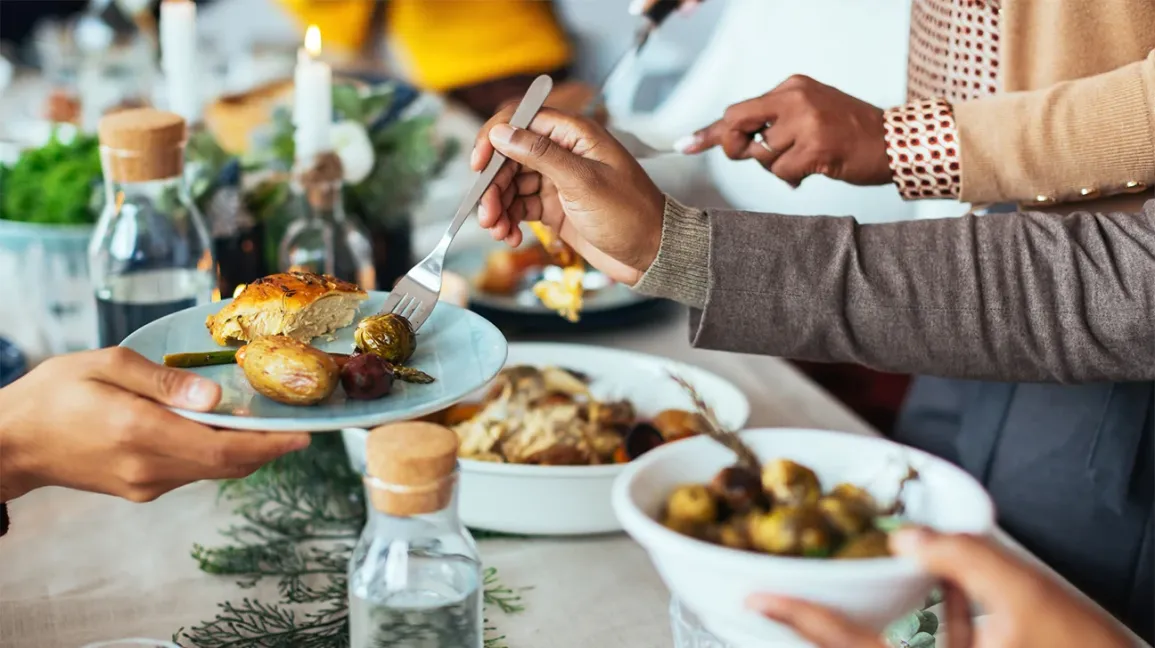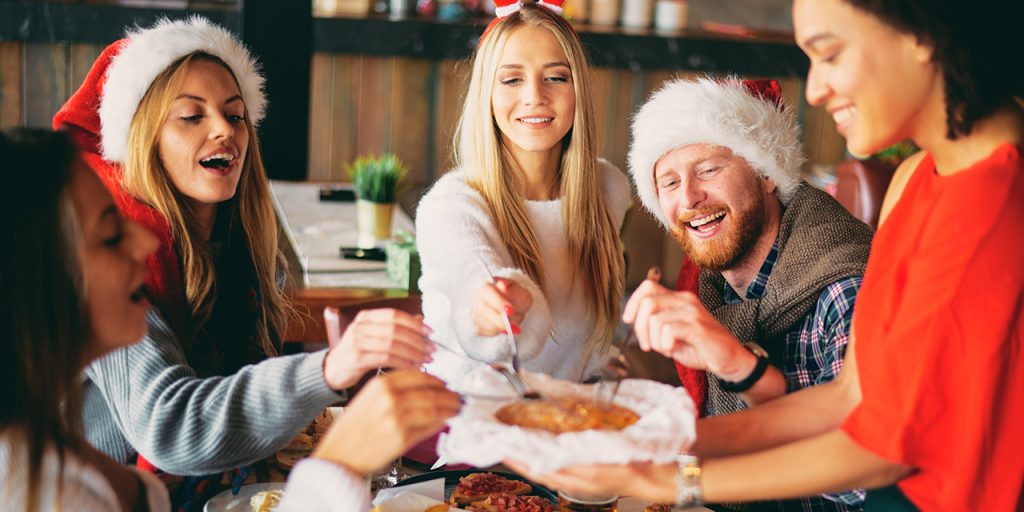
United States: During festive seasons laden with culinary delights, many people face the dilemma of potential weight gain and may consider skipping meals or attempting a “cleanse” to counterbalance holiday indulgences. However, experts suggest that such approaches may ultimately prove counterproductive.
According to a recent survey conducted by Orlando Health, close to 40 percent of Americans harbor concerns about their dietary habits during the holiday season. From a representative sampling of 1,019 US adults, the survey highlighted that 25 percent of participants feel compelled to skip meals ahead of holiday gatherings, while a third believe in the necessity of detoxing or undergoing a cleanse post-holidays, according to reports by newsweek.com.
Dietitian Christine Byrne from Ruby Oak Nutrition shared insights with Newsweek, explaining that while it’s understandable for individuals to consider meal-skipping or restrictive diets around festive times, this strategy can inadvertently lead to a cycle of restrictive eating followed by binging. Byrne elaborated: “Celebrations often revolve around shared meals and the pervasive fear of holiday weight gain fuels misconceptions. Restricting food intake severely can increase the likelihood of losing control around food, leading to overindulgence at gatherings or festive meals.”

Sara Riehm, a dietitian at Orlando Health Center for Health Improvement, further emphasized in a statement that enjoying traditional holiday dishes won’t derail an individual’s long-term health or routine. “The holidays are a yearly occasion, and indulging in cherished recipes that might contain extra sugar or fats doesn’t necessarily impact health,” she noted. Riehm observed that, among her patients, anxiety over potential weight gain is often more prevalent than actual weight gain during the holidays, as reported by newsweek.com.
Byrne also reported that, in her practice, clients grappling with disordered eating habits often require additional guidance during holiday months to avoid falling into a pattern of restriction and bingeing. “Some try to maintain ‘good’ behavior by consuming low-calorie meals for days, steering clear of certain foods, and then, feeling deprived, they become upset when they overindulge at events,” Byrne said. “Following these episodes, the inclination to restrict food intake again as a form of ‘compensation’ only perpetuates the cycle.”
Instead, Byrne advocates for a return to regular, balanced eating after a day of festive feasting. “You might find yourself feeling slightly less hungry, and it’s okay to listen to that. However, maintaining your usual eating pattern makes it less likely you’ll overindulge in holiday treats when they’re around, as you won’t feel deprived or ravenous,” she advised, according to reports by newsweek.com.
Riehm concurred, suggesting that making nutritious choices is much easier when hunger is managed. She recommends consuming a light, balanced meal containing protein and fiber before attending a party to make more mindful decisions about what to enjoy. “It’s perfectly fine to savor that special dish you’ve been looking forward to,” Riehm added, “just consider balancing it with other nutrient-dense options.”
In particular, Riehm cautioned against resorting to detoxes or cleanses post-holiday. “Our bodies naturally excel at eliminating so-called ‘toxins’ from food, thanks to the liver and kidneys, which effectively filter out these elements without the need for juices or commercially marketed supplements,” she explained, as per newsweek.com.

With these expert perspectives, embracing a balanced approach to holiday meals is not only achievable but fosters a healthier mindset around festive indulgences.
